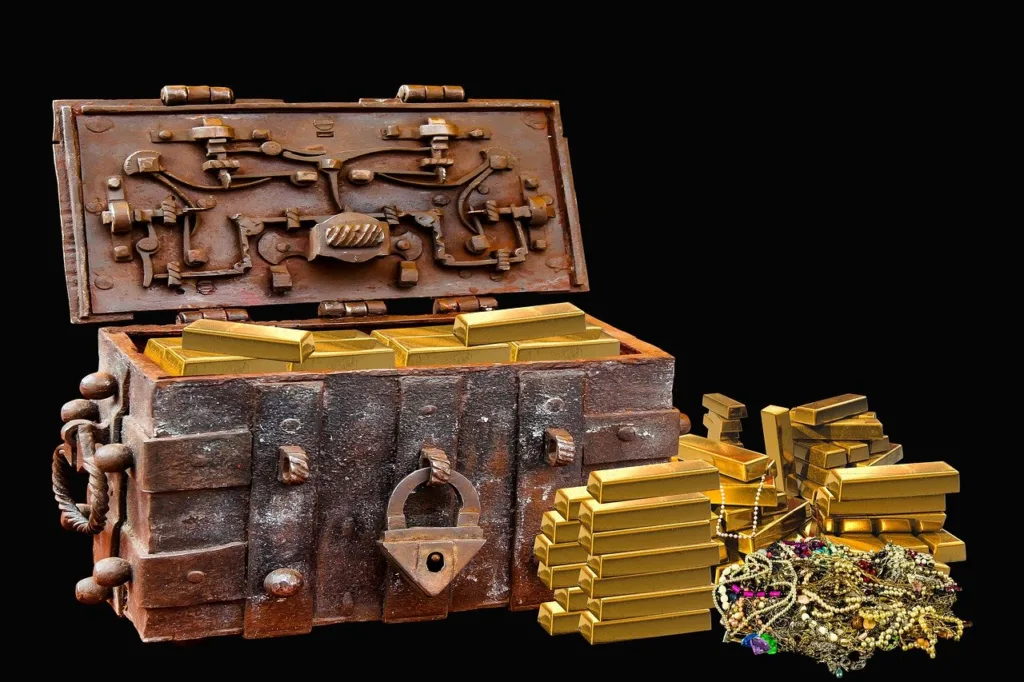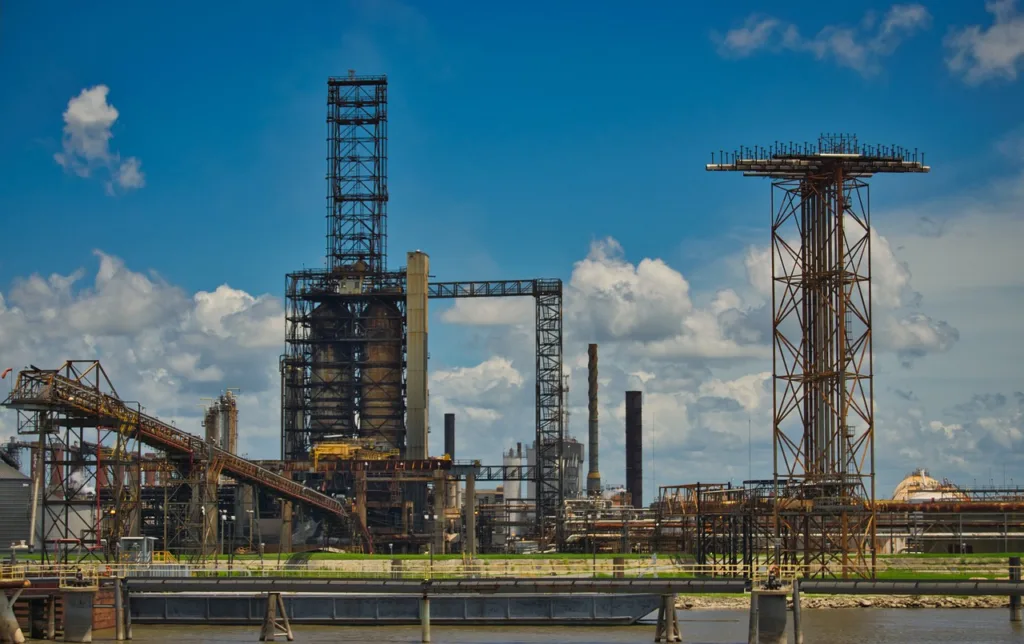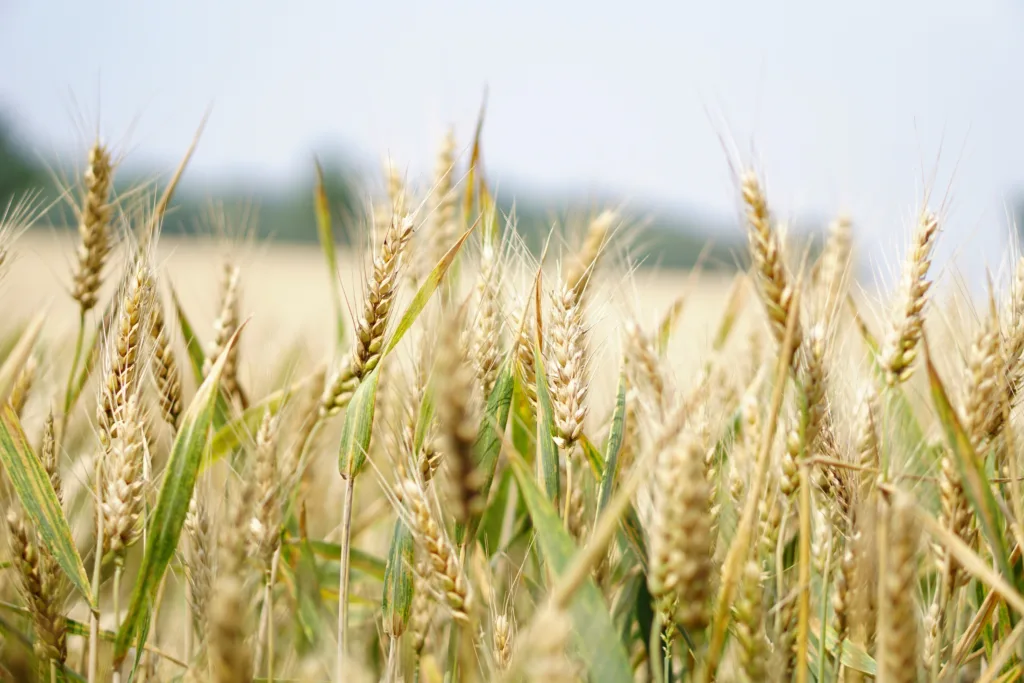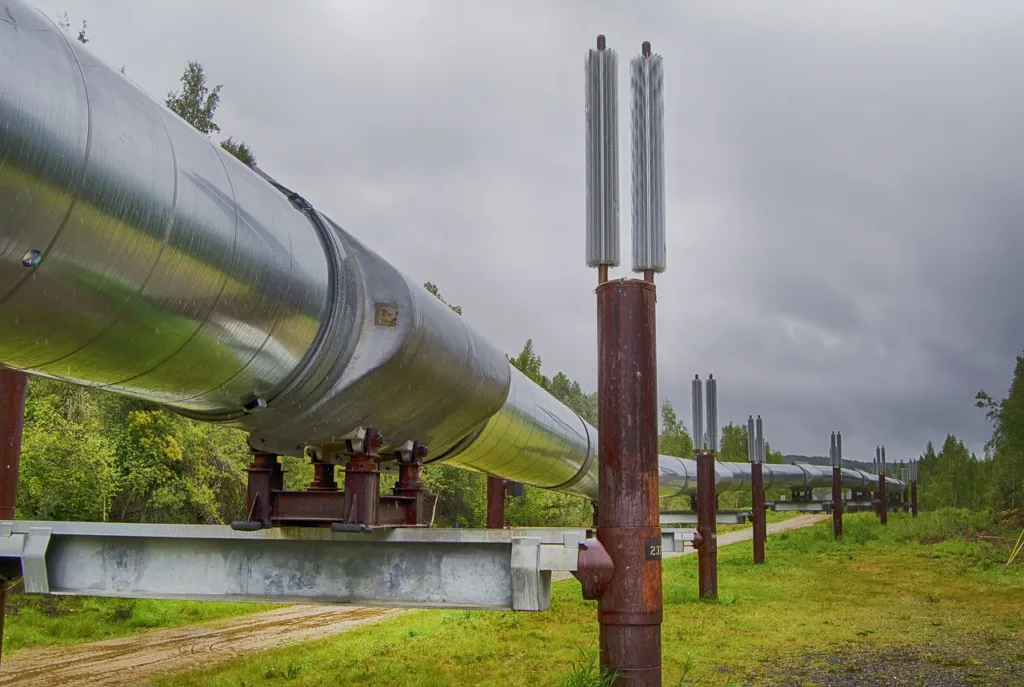In the fast-paced world of investment, where diversification is key, investing in commodities has emerged as an attractive option for investors seeking to bolster their portfolios. In this article, we will delve into the realm of commodities and explore the opportunities they offer to savvy investors.

Commodities are a vital part of most Americans’ daily lives. Commodities can help investors diversify their portfolios beyond standard assets. Because commodity prices tend to shift in opposition to stock prices, some investors rely on commodities amid market instability.
Table of Contents
What is a Commodity?
A commodity is a basic good used in trade that is interchangeable with other items of the same sort. Commodities include wheat, gold, meat, oil, natural gas, etc.
Commodities trading formerly required substantial amounts of time, money, and experience, and was primarily reserved for professional traders. There are now additional ways to invest in commodity markets.
Characteristics of the Commodities Market
The fundamental principles of supply and demand drive the commodities markets in the broadest sense. Changes in supply have an influence on demand; a lack of supply means higher pricing. As a result, any substantial interruptions in a commodity’s supply, such as a widespread health issue affecting cattle, can cause a spike in the typically stable and predictable demand for livestock.
Prices can be affected by global economic development and technical advancements. For example, the rise of China and India as key manufacturing players (demanding a larger volume of industrial metals) has contributed to the world’s decreasing availability of metals such as steel.
Types of Commodities
There are basically four major types of commodities: metal, energy, livestock and meat, and agriculture.
Commodities are the lifeblood of global trade, encompassing a wide range of tangible assets. These assets can be categorized into four main groups:
1. Metals – Hard commodities: Gold, silver, platinum, and copper are examples of the most common metal commodities to invest in. During instances of market turbulence or bear markets, some investors may choose to invest in precious metals, notably gold, due to its reputation as a trustworthy commodity with actual, transferable value. Investors may also choose to buy precious metals as a hedge against excessive inflation or currency depreciation. Precious metals like gold and silver, as well as industrial metals like copper and aluminum, are highly sought after commodities. They often serve as indicators of economic health.

2. Energy – Hard commodities: Crude oil, heating oil, natural gas, and gasoline are examples of energy commodities. Rising oil prices have historically resulted from global economic changes and decreasing oil outputs from established oil wells throughout the world, as demand for energy-related products has increased at the same time that oil supplies have diminished. Crude oil, natural gas, and coal are prime examples of energy commodities. While investing in commodities, investors should sincerely consider the market and price dynamics, which are influenced by geopolitical factors, making them both volatile and potentially profitable. Energy is a well-known commodity that includes crude oil, natural gas, gasoline, and heating oil. As a result of development, demand for energy-related items has risen steadily throughout history. According to Adam Ng, CEO and Founder of Trusted, “energy stocks have been among the market’s best performers to begin the year, and while the sector may need some time to solidify those gains, there are still plenty of compelling reasons to consider adding shares of a company like Diamondback Energy at this time.” It is an independent oil and natural gas firm that operates in two segments: upstream and midstream activities.”

3. Agriculture – soft commodities: Corn, soybeans, wheat, rice, cocoa, coffee, cotton, and sugar are examples of agricultural commodities. Grain prices in the agriculture industry can be extremely volatile throughout the summer months or during any period of weather-related change. Population increases, paired with restricted agricultural supply, can give agricultural investors chances to profit from rising agricultural commodity prices. Commodities such as wheat, corn, and soybeans are vital for sustenance, which makes investing in commodities like agricultural products a potential option. Weather conditions and global demand are a few of the factors that influence agricultural commodities.

4. Livestock – Soft commodities: This category includes cattle, hogs, and other animals raised for meat production. Livestock is the other half of what most people connect with agriculture. This commodity is concerned with cattle, chickens, hogs, and other animals. While there is less uncertainty in animal commodities than in crops, there are still certain risks associated with them. Lean pigs, pork bellies, live cattle, and feeder cattle are examples of livestock and meat commodities. Investing in Commodities like livestock is highly dependent on market dynamics, especially supply and demand dynamics. So, one should be cautious about the risks as well.

What is Commodity Trading?
The practice of buying and selling diverse resources is known as commodity trading. The tradition dates back hundreds of years, albeit it no longer resembles what it once did. Commodity trading used to be focused on resources and spices, which promoted global cultural interchange. Investors may now buy not only real commodities but also shares in commodity firms, ETFs, and mutual funds.
Commodity trading, when done appropriately, may be a terrific method to diversify an existing investing portfolio. This is due to the fact that commodities frequently benefit from consistent demand, allowing investors to make the most of their earnings. While commodities are prone to market changes, they may offer protection against inflation or when the value of the US dollar falls.
The Supply and Demand Rule
Commodity investment is based on supply and demand theory. Many commodities are raw materials or fundamental things, which means that there is limited variation within any product. This essentially indicates that commodity prices are not influenced by the same factors that influence other sectors, such as manufacturer. Instead, the price of any individual product is determined solely by market demand. As a result, many commodities, such as oil, are subject to price swings throughout time.
If you want to invest in commodities, keeping up with current events and gaining a deeper grasp of the market you are investing in might be beneficial. This is frequently the greatest technique for protecting your money and preparing your portfolio for any major events.
Lowest Cost Commodities Generate The Most Profit
As a result of volatile markets, the finest commodities are frequently those produced at low prices. This is because commodities sectors with large overhead costs are less equipped to respond to falling prices. After all, businesses must pay more expenses in order to maintain their margins. Commodities with minimal overhead costs are thus more adaptable to fluctuations, as producers still stand to profit when selling units. Keep this in mind when you investigate other possibilities and learn about market demand.
Benefits Of Investing In Commodities
The biggest advantage of investing in commodities, particularly if you come from the real estate business, is the ability to diversify your portfolio. Having said that, there are several reasons why commodities stand out from other investment types:
Commodity performance does not often correspond with other assets, allowing you to diversify your portfolio. Commodities, on the other hand, are influenced by economic and political issues linked to supply and demand.
Depending on how you invest, commodities can help you hedge the risks of other investments. In simple terms, you can invest in a commodity that will rise in value if another asset of yours falls in value.
Commodity investing is one way to guard against inflation. Because of the nature of demand, commodities often do not increase at the same rate as other assets.
Keeping the above factors in mind, investing in commodities is a mindful investment option.
Risks Of Investing In Commodities
Unfortunately, there is no such thing as a flawless investment, and commodities are no exception. Before you begin, be aware of the following risks:
Commodities are vulnerable to market fluctuations, such as the COVID-19 epidemic. While keeping up with current events might help you anticipate changes, there is no way to foresee price variations or volatility correctly.
Commodity investment necessitates some speculation, which makes profits questionable. In some respects, this may make commodities less appealing to novice investors who are unable to foresee market movements.
Global events, foreign government policies, international trade competition, and economic circumstances are all macroeconomic variables that influence commodities and may cause your investment to lose value.
If you are interested in knowing how to start investing and what the best investment options are, you can refer to this: How to start investing and what are the best investment options?
How To Invest In Commodities In 5 Different Ways
There are various ways to invest in commodities, each with its own set of advantages and disadvantages. Before selecting a strategy (or two) for their portfolios, investors should conduct research on each type. Commodity investing may be done in five ways:
- Investing in firms that produce commodities
- Buying futures contracts
- Investing in exchange-traded funds
- Commodity trading using mutual and index funds
- Collaboration with commodity pool operators
How To Use Stocks for Investing In Commodities
Stocks are probably the most easy way to invest in commodities. To begin started, investors can simply buy stock in a commodity trading business. Those interested in metal commodities, for example, may purchase stock in a gold-focused mining business. This strategy is particularly appealing to investors who cannot make a substantial initial commitment.
Commodity equities’ risks are generally focused on the firms themselves. Prices may be impacted negatively by business operations or other company-related issues, rather than solely the actual worth of the commodities. Unfortunately, there is no way to totally eliminate this risk, but investors may do extensive research on the company before acquiring stocks.
How To Use Futures for Investing In Commodities
Futures are an excellent way to invest in commodities, especially if you are familiar with the market and enjoy speculating on price movements. Futures contracts are simply agreements to buy or sell shares at a set price in the future. When the value of a commodity fluctuates, investors can benefit from futures contracts. This can be done either temporarily or permanently.
Beginning with futures contracts requires extensive industry study and is often not suggested for novice investors. The reason for this is that much futures investing is based on conjecture. Investors, on the other hand, can deal with a broker or choose contracts with a purchase option.
How To Use ETFs for Investing In Commodities
ETFs are a wonderful option for people who are interested in fluctuating commodity prices but do not wish to acquire futures contracts. ETFs are exchange-traded funds that function as a collection of securities. They may be purchased and sold in the same way that stocks can, with prices fluctuating throughout the trading day. Commodity ETFs can be purchased with the assistance of an online or traditional broker. It should be noted that not all commodities have linked ETFs; consequently, investors looking for a certain commodity may need to explore elsewhere.
Using Mutual & Index Funds for Investing In Commodities
Mutual funds may be an excellent way to invest in firms that deal with certain commodities. While this possibility does not allow investors to directly interact with the commodity, there are many protections related to mutual funds to consider. Mutual funds are well-known for their competent management and liquidity. This makes these funds an excellent choice for investors looking to profit from commodity firms without directly purchasing equities. In many respects, this might be an excellent entry point into commodities investment. Again, investors must be mindful of market swings as well as company-specific news. The correct mutual fund, on the other hand, can give some insight into this process.
Using Commodity Pools for Investing In Commodities
Commodity pools are a mechanism for a group of investors to pool their resources to acquire futures contracts and options. The commodities pool operator (CPO) will send account statements and yearly financial reports to the participants. A commodities pool’s combined structure often allows for bigger investment opportunities.
Each pool will usually have an advisor who must be registered with the Commodity Futures Trading Commission (CFTC). Advisors can then offer investing advice on the different possibilities. Commodity pools, like mutual funds, are popular among investors because they provide the extra benefit of a financial counselor.
What Are The Best Commodities To Invest In?
When deciding on a commodity to invest in, two variables must be considered: supply and demand. While most commodities benefit from steady or worldwide demand, some have profited better over time than others due to restricted supply. Beginner investors can consider the following commodities as a good place to start:
- Gold
- Base metals
- Crude Oil
Gold
Most people associate gold investments with the purchase of jewelry or antique gold coins. In actuality, there are several methods for investing in commodities specially gold, each of which may be beneficial when done correctly. Because of its success against inflation, gold may be a very appealing investment. Gold prices often rise when the value of the US dollar falls. As a result, investing in gold is a popular option for individuals wishing to diversify their existing portfolios.

Buying real gold, futures contracts, or equities in gold mining firms are all options for investing in gold. Each of these investment types has its own set of risks and rewards, but when combined, they can provide investors with a potential to profit from this precious metal.
Base Metals
Due to the constant worldwide need for base metals, they are a common commodity to invest in. These metals are widely distributed around the world and are recognized for their application in commercial and industrial sectors. Because of this, investing in commodities like basic metals is often affordable while yet having the potential to provide significant returns. However, in order for investors to profit from the actual commodities, they would need to buy substantial quantities of the materials. As a result, buying shares of mining firms is frequently the most user-friendly approach to invest in base metals.
Crude Oil
Because of its numerous applications, crude oil has long been a popular commodities investment. Crude oil may be used for more than just fuel; it can also be used to make polymers, asphalt, fertilizer, solvents, ink, and even cosmetics. There are several methods to invest in oil, however some demand significant funds to get started. Investors interested in investing in commodities like crude oil, can buy equities in oil firms, exchange-traded funds (ETFs), and even mutual funds.

One of the most significant risks related to crude oil is that its profitability is extremely sensitive to variations in demand. As previously stated, oil was one of several investment kinds that were badly impacted by the events of 2020.
What Are The Best Commodity Stocks & ETFs?
You may be shocked by the sheer number of commodities stocks and ETFs available when you begin your investigation. A decent rule of thumb is to start by researching a certain product and then investigating each of the industry’s major participants. When it comes to commodities stocks, the following are the most important firms to get you started:
- Barrick Gold: A gold mining company.
- Archer-Daniels-Midland: Produces Corn, wheat, and other agricultural commodities.
- Valero Energy produces gasoline and heating oil.
- ExxonMobile: Produces Crude Oil
- Tyson Foods: beef, pork
- Anglo-American Platinum: Base metals
- Freeport-McMoRan: Produces Copper, gold, and energy products.
Those interested in ETFs should use a similar approach. Begin by researching the commodity type you are interested in, then move on to various funds.
The following are some of the most widely accessible ETFs:
- Teucrium Corn Fund
- United States Oil Fund
- SPDR Gold Trust
- VanEck Vectors Gold Miners
- iShares Silver Trust
- Aberdeen Standard Physical Silver Shares
When Should You Invest In Commodities
The optimal moment to invest in commodities is not always obvious. As with many investment kinds, a common rule of thumb is to buy when the price is low and the outlook is favorable. To forecast these events, investors will need a solid grasp of the market.
When it comes to investing in commodities, inflation is another useful signal for identifying the optimal time to purchase commodities. Commodities, in general, can assist investors safeguard against inflation. If inflation looks to be on the rise, it may be time to reconsider this technique. However, inflation is not always simple to forecast, particularly since markets continue to fluctuate as a result of the effects of COVID-19.
Are Commodities A Good Investment
Commodities may be an excellent investment for a variety of portfolios. Commodities, as previously stated, are not subject to the same market factors that affect other assets. Many commodities, on the other hand, are governed by supply and demand principles. This reduces some of the risk associated with commodity investing.
Certain commodities, such as gold, are regarded to be historically trustworthy investment prospects. Many investors use gold to protect their investments, particularly during times of market volatility. However, commodities are not immune to some hazards, and investors should always exercise caution while making investment selections.
Risks and Considerations While Investing in Commodities
While the allure of commodities is undeniable, it’s important to acknowledge the risks associated with these investments:
Price Volatility
Commodity prices can be highly volatile, influenced by factors ranging from weather events to geopolitical tensions. Investors should be prepared for fluctuations in the value of their holdings.
Supply and Demand Dynamics
Changes in supply and demand can impact commodity prices. For instance, a bumper crop can lead to a surplus of agricultural commodities, causing prices to fall. Conversely, a supply shortage can drive prices higher.
Market Knowledge
Investing in commodities requires a deep understanding of the specific market you intend to enter. Each commodity market operates differently, with its own unique factors and dynamics.
Conclusion
In conclusion, investing in commodities can be a smart move for diversification, inflation protection, and portfolio stability. However, it’s crucial to approach these investments with caution and a solid understanding of the associated risks. Before diving in, consider consulting with a financial advisor who specializes in commodities to ensure your investment strategy aligns with your financial goals.
Investing in commodities can be a rewarding journey for those who are well-prepared, making it a valuable addition to any investor’s toolkit. So, are you ready to explore the world of commodities and potentially boost your investment portfolio? Start your journey today.
FAQs
Q1. Are commodities a good investment?
Yes, investing in commodities is considered a safe investment option, as they tend to protect investors from the impacts of inflation.
Q2. What commodities are best for investment?
Gold, Silver, Natural Gas, Crude Oil, Copper, Coffee are among top 10 commodities to worth consider for investments.
Q3. Are commodities high risk?
The commodities add diversification to an investors portfolio and a safe bet against inflation. Considering the fact that commodity price can be highly volatile, investing in commodities carry significant risk.
Q4. Is it better to invest in stocks or commodities?
Both investing in stock markets and commodities are considered as risky investments. Although, investing in stocks are said to be less riskier than commodities if you consider stock investment to be long-term investment.
Q5. Why not to invest in commodities?
Certain investment options like stocks, bonds, real estate are considered comparatively safer option as they produce regular income to the investors unless they are traded and a profit is realized from that sale.
Q6. Should I invest in commodities in 2023?
Possibly, commodities markets may provide significant return possibilities this year as supply bottlenecks persist and China reopens despite current macroeconomic challenges.
Q7. Can I buy commodities for long term?
Yes, you can considering buying certain commodities for long term. As we know, Gold till date is following upward trend starting from 1971.
Q8. Is it smart to invest in gold?
Yes, Gold should be considered as an important option for a diversified investment portfolio.
Q9. Which commodity is most in demand?
Other than Gold, Crude Oil is one of the biggest commodity market and in high demand.
Q10. How risky is trading commodities?
Any kind of investment is considered risky considering uncontrollable factors like inflation, weather, foreign events, political events, new techs and any kind of rumor which makes them volatile.




One thought on “Best Guide for Investing in Commodities”
Your article helped me a lot, is there any more related content? Thanks!